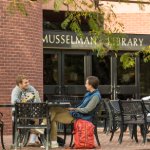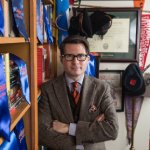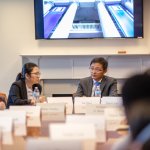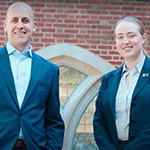
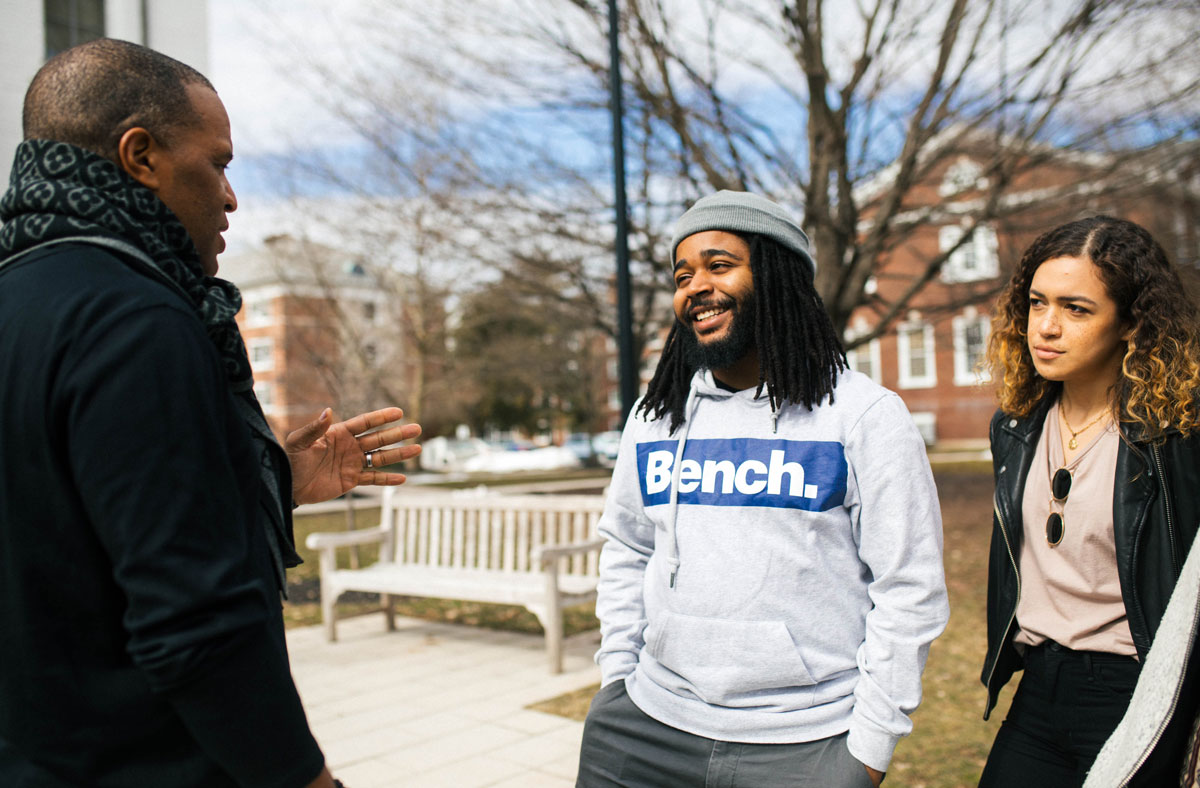
“What are you passionate about?” asks John Hope Bryant.
Under the late winter sun outside Stevens Hall, he’s surrounded by three Gettysburg students from different majors who share a common interest in entrepreneurship. They’re curious about his views on economic inclusion, social justice, and how they can make a difference in the world.
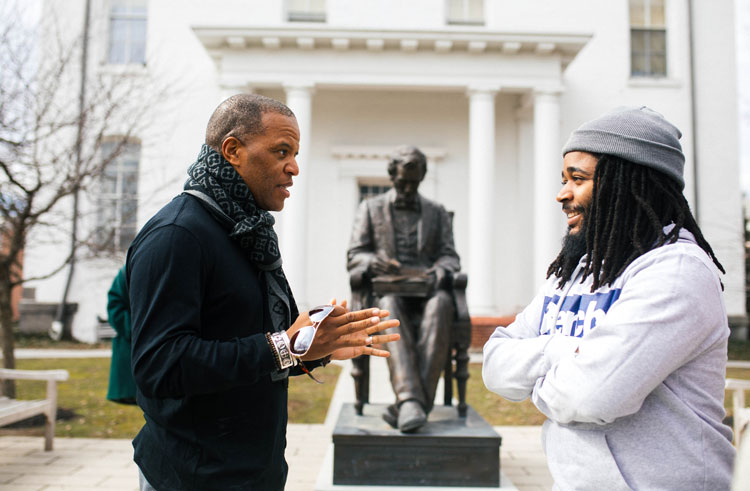
Jean Dorelus '22, from Chicago, asks him about the job market today, noting he dreams of being an independent investor. He points out to Bryant that racial bias still exists in the hiring process at many companies. For that reason, he wants to be his own boss.
In response, Bryant offers encouragement, which he’ll do many times before this day ends: “African Americans should have a bias towards excellence.”
Bryant’s core message cuts across race and class. His candor stems from a desire to talk openly about the more urgent questions of our day: income inequality, climate change, and racism. These themes were at the heart of his Feb. 26 lecture at the annual Economics Finance Symposium, presented by Gettysburg’s Entrepreneurship & Social Innovation Initiative and the Hanson Lecture Series.
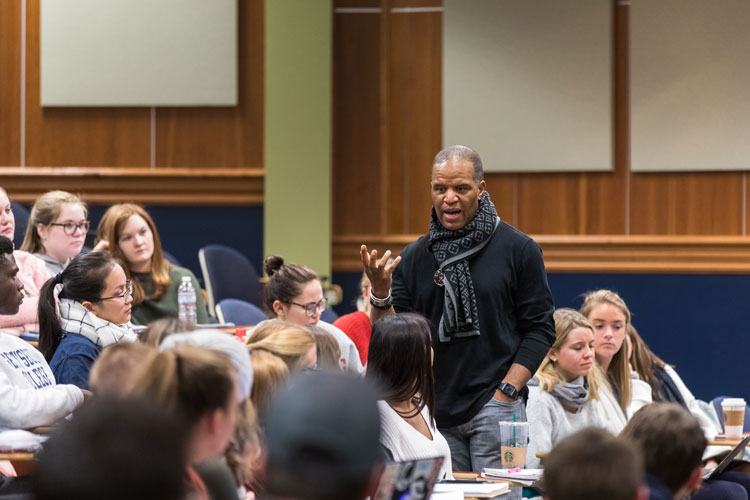
Bryant’s talk offered a fresh perspective on Abraham Lincoln’s Reconstruction-era economic inclusion work via the Freedman’s Bureau, which some consider America’s first financial literacy program. It provided critical aid to freed slaves in the wake of the Civil War.
As founder and chairman of Atlanta-based Operation HOPE, Bryant speaks worldwide on what he calls the “Power of Doing.” It’s a business philosophy driven by a passion for social justice—a message that aligns perfectly with the spectrum of courses offered by Gettysburg’s economics and organizational management studies departments.
Entrepreneurial thinking at Gettysburg
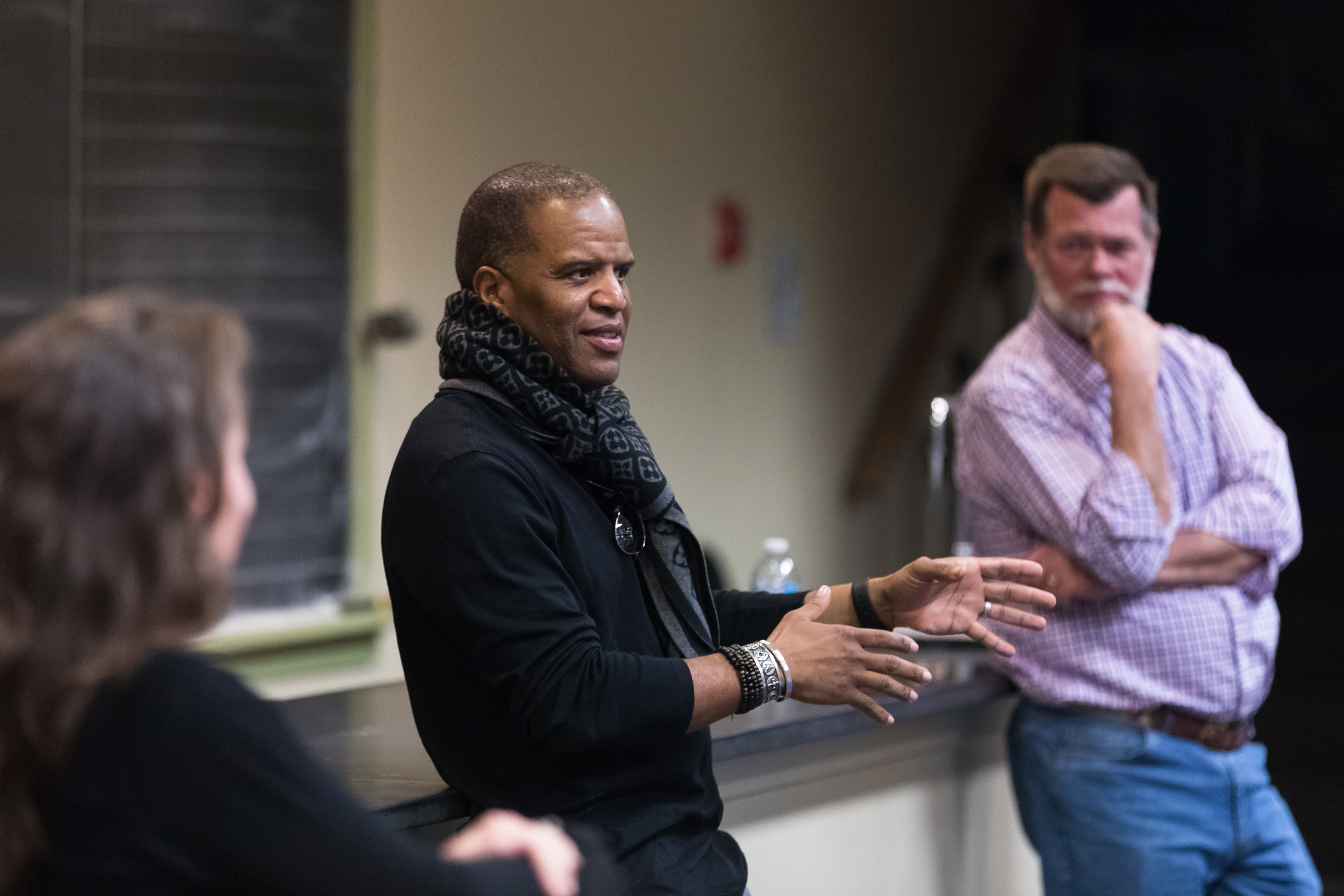
Entrepreneurship’s appeal at a liberal arts school may seem unorthodox to some observers, but it makes perfect sense at Gettysburg—where students from all majors can begin their exploration of the subject in Econ 463, Business and Entrepreneurial Thinking, led by Prof. Drew Murphy.
“E-SII captures the power of youth, the focus and methodology of critical thinking, and the discipline of our diverse range of majors to make Gettysburg students uniquely prepared for the world,” Murphy said.
Jen Flores ’19, from New York, said Bryant’s message is impactful because it encourages a spirit of civic duty. The economics major has already put those ideas in action, most recently as a finance intern for a housing nonprofit in New York City.
“Before Gettysburg, I lived in this bubble and thought all of America was like New York City,” she said. “Gettysburg has changed my life tremendously. My economics research has given me so much perspective.”
Engineering innovative entrepreneurship
Back outside Stevens Hall, as Bryant regales students with advice on credit scores and banking, Dorelus thinks about the future.
He’s the sole freshman participating in the Entrepreneurship & Social Innovation Initiative (E-SII). The program engages students with both academic and experiential learning. That methodology allows students to think innovatively and apply what they learn in the classroom to real world problems. The end goal is to create solutions that effect positive change.
“Gettysburg allows me to be entrepreneurial as I choose my curriculum and courses,” he tells the group of assembled students as Bryant listens intently. “And it’s fantastic to be able to hear from speakers who agree that entrepreneurship is one way to end poverty.”
Those lessons endure at Gettysburg, where Lincoln’s spirit lives on.
“It gives me hope to be here at Gettysburg College,” Bryant concludes. “Lincoln was brilliant—way ahead of his time. His body died but his ideas are alive here, now more than ever.”
By Zeb Eckert
Photos by Miranda Harple, Shawna Sherrell
Posted: 03/04/19
